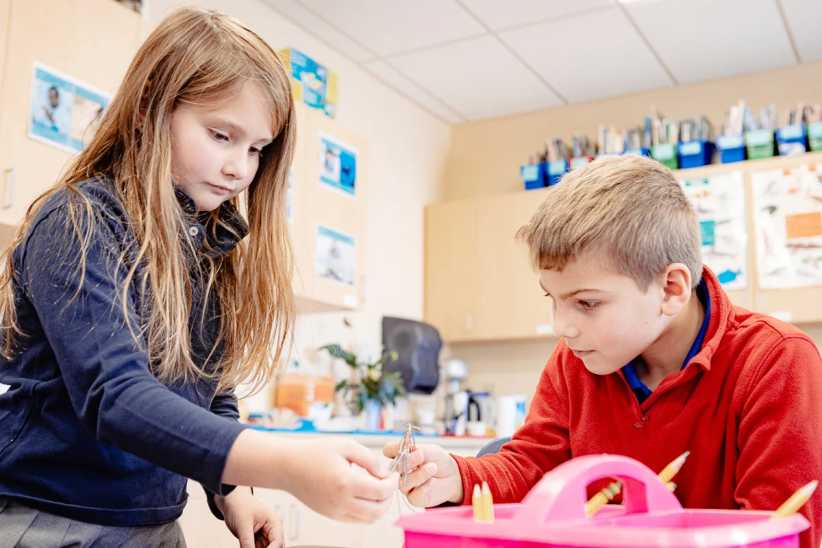Over the past several months, hundreds of Queens schoolchildren have been taken on a literary journey with Lewis and Clark on their legendary expedition across the continent. The adventure comes to life in the theater production of Bird Woman: The Story of Sacagawea, a play by Ric Averill. But for the Queens youngsters, the journey does not end with the discovery of the Northwest Passage. For them, the adventure is just beginning, as they go back to their classrooms to write their own plays and bring other stories to life. These children are participating in programs run by Making Books Sing, a not-for-profit theater company and arts-centered educational organization based in Manhattan. Started in 1996 by Barbara Zinn Krieger as an arts-in-education program at the Vineyard Theater, Making Books Sing recently spun off as a separate entity. Through its theater productions and school-based residencies, the company serves 1,500-2,500 children in grades Pre-K through 8 each year. Managing director Debra Sue Lorenzen says the core of the program is to “first start with a really great piece of children’s literature, and secondly, to put on a professional, high quality theater production.” The Making Books Sing residencies have direct connections to Learning Standards in the Arts, language arts and social studies curricula. “We have a very specific curriculum that we follow, but we still allow creativity by the teaching artists,” Lorenzen says. Before seeing the theater production, the children read the book on which the show is based. Then they attend the show, and observe how the playwright and actors interpret the story. In the weeks afterward, the students work with a teaching artist to create their own plays based on books chosen by their teachers. “Our function is to help them better understand the book — what it feels like to be that character,” Lorenzen explains, adding that the artists want the students to understand the basis for a quality piece of literature. Many of the Queens children served by the program are English language learners who have recently immigrated to the United States. “I have seen many cases where the first lines spoken in English are doing our plays,” Lorenzen says. The children start out doing dramatic exercises using their bodies; some are totally silent so they can communicate without spoken language. Later on, the youngsters write the scripts in small groups. “The kids just get it,” she says. Lorenzen says the company wants the children to “know they are seeing something beautiful.” This year, the Queens production of Bird Woman was performed at Queens Theater In the Park. By staging the shows in professional theaters, children get a rich theater experience complete with velvet seats, ushers, live music and lavish costumes and sets. “Under the Vineyard Theater, we did really lush productions, and we wanted to keep that quality after the spin-off,” says Lorenzen. “We recognize young people as being a discerning audience, and we want to do shows that are commissioned for them.” The attention to professionalism is evident in every aspect of the Making Books Sing programs. The teachers are all working artists; most are actors, directors, playwrights or a combination, according to Lorenzen. “It is a requirement that the artist’s work in the classroom will inform their art, and that their art will inform their work in the classroom,” she says. “They are teaching artists, so they can be better artists.” And, she reports, the children really seem to rise to the challenge of working with professionals. “Our artists must create a safe and nurturing environment. They constantly tell the kids there is no right or wrong answer, just choices. They tell them: Make whatever choice you want because you are artists.” And it’s not just the children who enjoy the residencies; many teachers also enjoy participating in the program, Lorenzen says. One of the goals of the program is to pass skills and knowledge of theater on to the classroom teachers so they can use the techniques to enrich all areas of study. Each classroom teacher is given a resource guide filled with ideas on how to incorporate themes from the show into their lessons. This year, some parents got the chance to get into the act as well. Two Queens schools and one in Brooklyn were awarded Parents as Arts Partners grants from the Center for Arts Education; Making Books Sing worked with the schools to combine daytime classroom lessons with evening activities where parents and children worked together. In choosing books for Making Books Sing, Lorenzen says they look for stories with universal themes. “We look for books with rich text and wonderful illustrations. The illustrations are important because actors and designers are really painting a picture,” she says. Next school year, the group will be staging a production based on The Upside Down Boy by Juan Felipe Herrera, about a young Latino boy who is uprooted from the only life he has ever known, to go to school in the United States to go to school and learn English. Lorenzen notes that this is a theme so many children, especially in New York City, can relate to. Even children who are not new to the city know what it feels like to go to a new school, since many children find themselves in that situation when they start middle school. Looking to the future, Lorenzen says Making Books Sing wants to continue to develop relationships and build partnerships with a finite number of schools. “It’s our absolute priority to serve the New York City school system,” she says. “The best way to do that is to really stabilize who we are here in New York City, and then take the next step outside of the city.” At the same time, she says it is important to recognize opportunity when it comes along. For example, next year’s program will have an added component: it will be run parallel to a similar program at an American School in Singapore. It’s hoped The Upside Down Boy story will work well in both countries since many of the children served have been transplanted to a new environment. There will be an exchange of ideas between teaching artists throughout the program, and some visits are planned. For information on Making Books Sing theater productions and residencies, call (212) 573-8791, or visit www.makingbookssing.com.





















